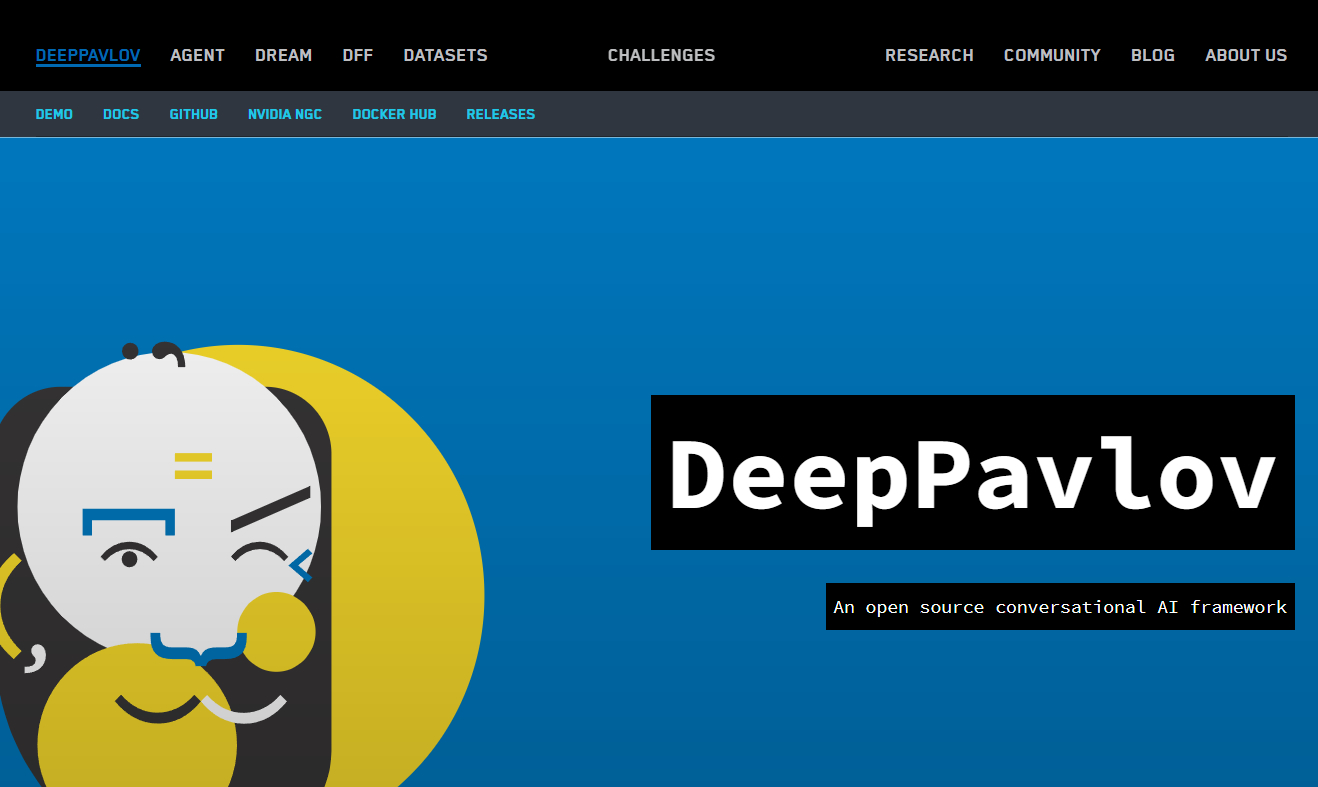











What is DeepPavlov?
DeepPavlov is an open-source conversational AI framework developed by the Neural Networks and Deep Learning Lab at Moscow Institute of Physics and Technology. It is designed to facilitate the creation of advanced dialogue systems and chatbots. DeepPavlov provides a wide array of pre-trained models and tools for natural language understanding (NLU), dialogue management, and natural language generation (NLG).
Key Features:
1.Pre-trained Models: DeepPavlov includes a variety of pre-trained models for tasks such as named entity recognition (NER), question answering, intent classification, sentiment analysis, and more.
2.Modular Architecture: The framework is modular, allowing developers to easily swap components and configure pipelines tailored to their specific needs. This modularity facilitates rapid prototyping and deployment of conversational agents.
3.Multi-lingual Support: DeepPavlov supports multiple languages, making it suitable for developing applications in diverse linguistic contexts.
4.Integration with Deep Learning Libraries: It integrates seamlessly with popular deep learning libraries like TensorFlow and PyTorch, providing flexibility and robustness in model training and deployment.
5.Customizability: Users can fine-tune pre-trained models on their datasets or build custom models from scratch using the framework’s tools.
6.Dialogue Management: DeepPavlov offers tools for building both goal-oriented and open-domain dialogue systems. This includes dialogue state tracking, policy learning, and response generation.
7.Extensive Documentation and Tutorials: The framework comes with comprehensive documentation, examples, and tutorials that help users get started quickly and understand how to utilize various components effectively.
8.Community and Support: Being open-source, DeepPavlov has a community of developers and researchers contributing to its improvement and providing support through forums and GitHub.
Target Audience:
1.Researchers: Those working in the field of natural language processing (NLP) and conversational AI can use DeepPavlov for experimentation and development of new models and techniques.
2.Developers: Software developers building chatbots, virtual assistants, and other conversational agents can leverage DeepPavlov’s tools and models to accelerate development and improve the quality of their applications.
3.Businesses: Companies looking to integrate conversational AI into their customer service, marketing, or internal operations can benefit from the framework’s capabilities to build robust and scalable dialogue systems.
4.Educators and Students: DeepPavlov can be a valuable resource for academic purposes, providing practical tools and real-world applications for teaching and learning NLP and AI concepts.






